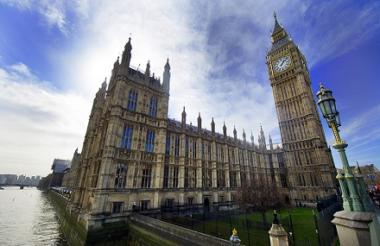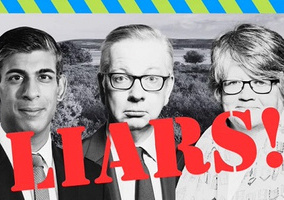Charity leaders have warned that “culture wars” that can divide the sector are likely to increase as the next general election approaches.
Speaking at NCVO’s annual general meeting, Sarah Vibert, chief executive of NCVO, said culture wars had created a “challenging environment” for charities such as those who campaign on trans rights.
“These so-called culture wars will probably intensify as we get closer to the election,” she said.
“I think it’s important to keep in mind though, that though it sounds very loud within the sector, all the polling research shows that the country is actually not as divided as that narrative suggests. In terms of public views of charities, trust in charities has continued to grow.”
Fadi Itani, CEO of Muslim Charities Forum, said in the lead-up to the election “we will see a lot of nonsense” and that charities should deal with it by working in partnership with one another.
The next general election is set to be held by January 2025 at the latest.
Sector must ‘try to be ready’ for election
Itani said that as the election draws nearer politicians could sacrifice promises they have made “for short political gains” which could increase the pressure on the charity sector.
“My concern is the pressure on the vulnerable in our society, they actually will be the weakest link in the sense of the political game,” he said.
“And we always have to pick up the pieces, unfortunately. So, try to be ready, as always.”
He added that “we always have to be prepared to deal with false promises” from political leaders.
‘Charities must be mindful of disinformation campaigns’
Sufina Ahmad, director at John Ellerman Foundation, also spoke on the panel. She said the sector should be aware of rhetoric that could undermine charities’ campaigning role in the lead-up to the election.
“We do have to be very alert to the issue of what is at stake in terms of our democracy in the next year and the way in which disinformation and nefarious actors are operating whereby we will find ourselves drawn into some of the rhetoric around the role of civil society; whether it can campaign, ought it to campaign and we know the answers to all of these things,” she said.
“The culture wars remain an issue. I agree that we’re not as polarised as we're led to believe but I do think that disinformation and misinformation campaigns are something that we should be very mindful of and that shouldn’t result in a silencing ourselves as a sector.”
Itani agreed that charities must campaign on the issues that affect their beneficiaries.
“Be the bridge for their voices. If we don’t do this, we are not really doing our job. We’re not here to please politicians,” he said.
‘It’s not just our right to campaign, but our duty’
Katharine Sacks-Jones, CEO of Become, said that campaigning is a fundamental part of charities’ activities.
“It's a bit like if you’ve got a hole in the boat, we need to bail out the water, but we’ve also got to fix the hole if we're going to keep things afloat.”
“I do think it’s important that charities are clear on the law around charity campaigning, but we need to make sure that we are risk aware, not risk averse when it comes to charity campaigning.”
Sacks-Jones continued: “My view is that we should ignore the statements from those who are seeking to keep charities in their box to keep us quiet and people who are seeking to fan the flames of the so-called culture war.
“It was really reassuring to hear that that’s not reflective of where most of the public are. And I think we absolutely have to be clear that we're acting in pursuit of our purpose.”












